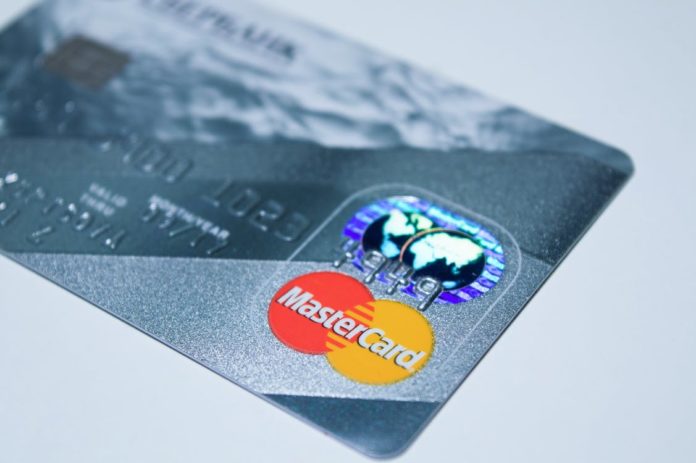- Mastercard’s Request to Pay solution is one of the first to be enrolled to the Pay.UK Framework
- Request to Pay Limited, a startup company bringing end-user applications to market, has selected Mastercard as its Repository provider of choice
- Request to Pay will benefit consumers, SMEs, large organisations and not-for profits by providing more options and flexibility to settle bills between businesses and individuals
- Half (49%) of people want greater control over their bill payments
- Request to Pay will reduce the number of late payments, and it is estimated could save billers around a billion pounds per year
Mastercard has today successfully enrolled to the Pay.UK Framework for its Request to Pay solution in the UK. Request to Pay is part of Mastercard’s global portfolio of Bill Pay applications enabling people to view and pay their bills instantly, and with flexibility, from their bank accounts.
Designed to put control in the hands of the payer, Request to Pay will provide more options and flexibility to settle bills between businesses and individuals, whether for mortgage repayments, utility and telecoms bills, or council tax payments. It will provide the payer with the options to pay in full, in part, request additional time to make a payment or decline to pay and begin a dialogue with the requester.
Sitting alongside Direct Debit and other bill payment methods, this offers individuals and businesses more choice and aligns with the growing trend for digital payments and greater control over bill payments. Mastercard’s 2019 State of Pay report found 74% percent of respondents already pay for bills including utilities and mobile phone contracts direct from their bank account — that’s an increase of 13 percentage points from 2017 – and half of respondents (49%) want greater control over their bill payments1.
Gregor Dobbie, CEO, Vocalink, a Mastercard company, comments: “Enrolling to the Pay.UK Framework is an important milestone in the roll out of our Request to Pay solution in the UK. Consumers are increasingly demanding faster, easier and more intuitive ways to pay bills and our Request to Pay will enable companies to meet these demands. This solution offers huge advantages for all involved – consumers, business, merchants and banks – who will all benefit from improved flexibility, speed and transparency of bill payments.
“Request to Pay is a key part of Mastercard’s vision to digitise payments to make life simple, seamless and secure for all parts of the payment ecosystem.”
Mastercard’s Request to Pay, which has been developed in partnership with Exela Technologies, brings significant benefits to both merchants and payers, including individuals who want to split bills with their friends, small businesses who can monitor vendor payments and large organisations who will be able to reconcile payments faster. It offers improved communication between billers and payers, reduces the number of late payments, and it is estimated it could save billers £1.3 billion per year2. Banks also benefit by gaining a deeper understanding from the exchange of rich data in order to further innovate their own product offerings.
Paul Horlock, CEO of Pay.UK, added: “Mastercard’s enrolment is another significant leap forward for what is set to become a fast growing market of Request to Pay services. By putting user control at the heart of the payment process, Request to Pay has the potential to revolutionise how we discuss money and pay bills. It sits alongside Direct Debit and other payment options as part of a suite of tools to give users the control they need over how and when they pay, all while reducing reconciliation costs for billers.
“We look forward to Mastercard’s solution coming to market as users begin to benefit from the control and flexibility Request to Pay offers.”
Mastercard’s Request to Pay solution will allow people to communicate directly with their biller, using an in-app chat feature, to query an unusual or unexpected bill before the payment is made, or make alternative payment arrangements. Typically, the service translates the payment request into a credit transfer once the payer has approved and authenticated the payment. This reduces the risk of error compared to if the payer had to enter the requester’s payment information manually and also reduces the risk of authorised push payment fraud.
Vitalie Robu, President, EMEA, Exela Technologies, said: “Exela’s global banking solution continues to evolve, and Mastercard’s Request to Pay enrolment serves as a benchmark of our ability to support new initiatives. Secure and unified electronic messaging is the missing piece of the jigsaw in revolutionising the automation of bill payment processes. Given the benefits that Request to Pay will provide to businesses and consumers, we believe that the solution will be widely adopted.”
Request to Pay draws on Mastercard’s existing expertise in the US where it has already launched the comprehensive Mastercard Bill Pay Exchange that links to The Clearing House’s (TCH’S) faster payments infrastructure and is built with technology from Vocalink, a Mastercard company. Request to Pay will be the first solution that Mastercard will deploy into Microsoft Azure Cloud, and it will benefit from the resiliency of Cloud architecture and allow Mastercard to scale up the solution as the demand increases.
Request to Pay Limited, an end-user application seeking enrolment into the ecosystem, has chosen Mastercard as its Repository provider. Managing Director, Andy Coleyshaw explains: “Request to Pay offers greater choice to customers, digitising all payment types, making life easier for everyone to manage and settle daily bills. Our solution, which leverages Mastercard’s repository service, will provide a bespoke, agnostic solution to market.”
To find out more, visit: www.vocalink.com/RequesttoPay



















